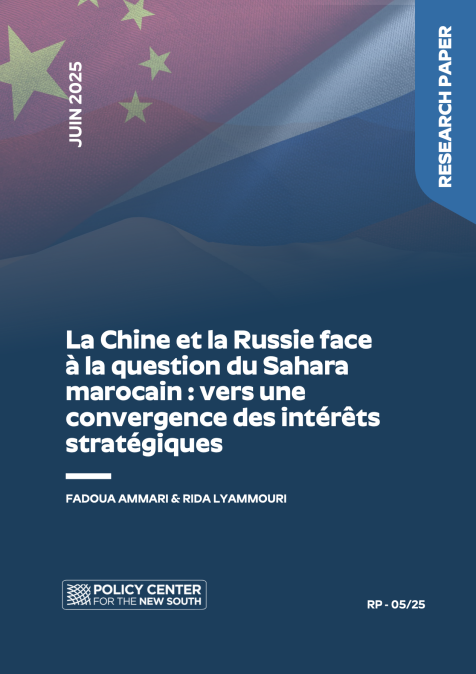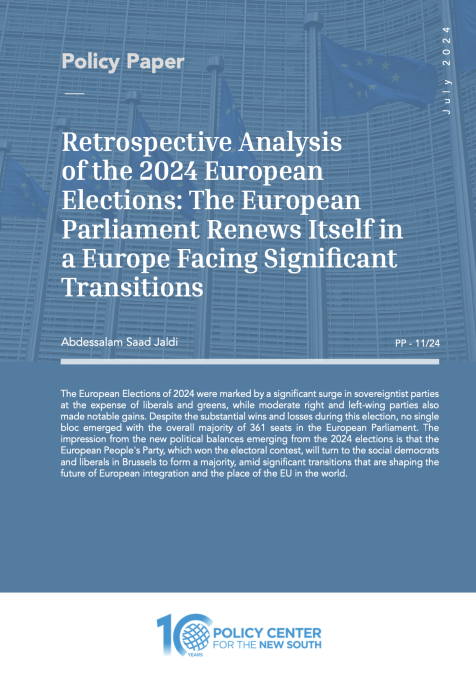Publications /
Opinion
He has reserved his page in history. Half a century ago Ernest “Che” Guevara was an icon of a global youth rebellion, a revolutionary pop star for the dreaming romantic generation of 1968- kids of the bourgeois conformist society who never had the courage to risk their lives or time for the oppressed. Instead, the angry restless sympathizers of Cuban and Vietnamese fighters threw stones and molotov cocktails, some smoked pot and shouted their support to Ho Chi Minh, the frail leader of the daring Vietnamese in the streets of Berlin, California’s Berkeley, Rome and Paris. The brave Vietnamese people, surviving on a daily ration of rice, their feet protected against American land mines and booby traps by sandals made from bamboo, were promoted to supermen (and women) because they dared to challenge the mighty and ruthless USA. More: they forced the assumed invincible power to flee, leaving behind a destroyed country and damaged egos of their GI’s.
Yes, idealism, the spirit of revolt against the capitalist and repressive world captured the minds of younger generations, who chose the traditional scarf of the Palestinians as an expression of defiance, resistance and solidarity. Che Guevara, the medical doctor born in 1928 in Argentina and on his self-proclaimed mission to liberate the proletarian masses, was promoted in the minds of young idealists to a hero figure. His beret, decorated with a star, documented chic machoism and revolt, even more so after his death. He was executed by CIA financed and trained Bolivian soldiers on October 9, 1967 near a small stale town named Valtegrande. Emotions, anger, bitterness and no more limits: Che Guevara was IT, a martyr, a symbol of the counterculture. Jean-Paul Sartre, who visited Guevara in 1960, the year following the historic revolutionary triumph in Havana, declared his host “the most complete human being of our time”. Fidel Castro and Che Guevara, whom Castro promoted to “commandante”, defied the powers in Washington and defeated their trusted ally, the Cuban dictator named Fulgencio Batista. Cuba’s rebels fought more than two years a gruesome and genial war of liberation. Guevara the philosopher turned into a tough warrior, ready to shoot deserters or spies. He turned from intellectual, author, thinker and strategist into a war machine, cold if needed, and brutal. A kind of Marxist Marchiavelli- in the sense that the methods were not important, only the results were.
The revolutionary wanted more than just freedom for Cuba. The world was crowded with other Cubas, with remnants of colonialism everywhere and dictators exploiting the masses. Soon after the liberation of Havana, Che Guevara visited 14 so called “Bandung pact” countries, among them Morocco, Japan, India, Egypt, Syria, Sudan. He showed up in China, North Korea, East Berlin, Moscow, but also in Tanzania, Ghana, Mali, Congo Brazzaville, since he believed Africa was the weakest link of imperialism, and ready for revolutions. On February 24, 1965, the mythical “commandante” appeared a last time in a public political function. It was in Algiers and he delivered a speech at an economic seminar of Afro-Asian solidarity. Cuba’s first active venture into Africa begun there, in Algeria, assisting the National Liberation Front in its independence fight against France, sending weapons and medical aide. After his triumph, the liberation of Cuba, Guevara quickly had grown tired of deciding who of the captured enemies should be shot by revolutionary firing squads or given a chance to survive in a labor camp. He was appointed by Fidel Castro to the most important government positions, but the rebellious physician was not an administrator, a theorist, but a revolutionary, whose portrait was multiplied by the millions, a decorative must for the restless youth of those years.
Six years after liberating Havana, the Cuban icon touched African soil again, this time in Congo-Kinshasa (on April 25, 1965), accompanied by a dozen Cuban expeditionaries. Their mission was to support the Marxist Simba Movement which emerged from the Congo crisis. Guevara, who entered his African war of liberation as “Ramon Benitez”, was ready to challenge the repressive powers of the world- colonialists and dictators. Cuba was the rehearsal! Now it was Africa’s turn. By the end of 1966 the Argentinian was ready to start his revolution in Bolivia. Guevara’s march into history books was on its way, he was celebrated as the hero of a new horizon, a Marxist promising equality for all, uprooting racism and restoring dignity. The icon was not irritated by self-doubt. He fathered five children with two women, helped to liberate a nation, wrote a classical book on “Guerilla warfare”, was admired by philosophers and leaders like Egypt’s Abdel Nasser who nevertheless declared Guevara’s African adventure as “unwise” and predicted his friend would end up looking like “Tarzan”. The idealist could not be deterred, his revolutionary spirit followed him like a shadow. The charismatic revolutionary leader was at the gates of a global awakening-freedom for all.
It was his dream, but also his illusions. During his seven months in Congo, the legend had struggled from one defeat to the next, and six of his Cuban comrades were killed. His illusions quickly turned into frustration as he readily admitted in a letter to Fidel Castro. Victory on this mission would be unlikely, “there are too many armed men”, but “what is lacking are soldiers”: that’s what he wrote. The Africans, whom he wanted to lead into battles of liberation, were just not ready: ”we can’t liberate by ourselves a country that does not want to fight”. In the preface of his diary, he noted that this mission was “a history of a failure”. He advised Castro that it would be better “to send a contingent of revolutionary doctors and highly practical nurses of a similar kind”.
Che Guevara was certain that his comrade Fidel would react positively to his request. Once they had declared victory in their own revolutionary struggle, Fidel Castro implemented their plan: a better life for the masses, particularly the creation of a health system, hospitals, doctors, free medicine for all. Their plan was to extend their mission by offering their doctors and nurses to the poor nations of the world. Medical assistance, practical and cheap, would benefit Castro himself, his prestige, and Cuba’s standing among the nonaligned nations. Medicine was to be the secret, soon not so secret weapon, to win hearts and minds of the masses, to win sympathy for the revolution and admiration for socialism. The island/nation could not offer oil or gas to the underprivileged states, it could only offer sugar and cigars. Mighty America isolated the revolutionaries, obstructing trade and tourism. Yet, Cuba’s “doctor diplomacy”, supported by Dr.Guevara himself, succeeded beyond expectations.
Today Cuba counts an estimated 70 000 active physicians, of whom about 28 000 are working on government medical mission abroad. Medical assistance, or medical internationalism, turned into one of the most important export items of Cuba’s history. At one time, after their own revolution, Cuba concentrated mainly on assisting political comrades, socialist or communist nations and liberation movements not only with arms or soldiers as in Angola, but medical teams and doctors like in Ethiopia, Zanzibar, Mozambique. Today, Cuban medical help is provided to 68 nations, as far apart as Brazil and South Pacific island nations like Oceania and Timor Leste. Medical personnel is not any longer part of a revolutionary strategy, but a diplomatic tool. Thousands of Bolivian, Brazilian, Venezuelan students and thousands more from South Pacific island states, are studying medicine at Cuban universities. Cuba’s “oil for doctors” initiative provided Venezuela with 31 000 Cuban dentists and physicians and in return Caracas delivered 100 000 barrels oil a day to Havana. Since Venezuela’s oil production and economy is crumbling these days, the Island nation has been searching for alternative suppliers besides Algeria- electricity and fuel on the island are already rationed. Quietly, just after independence, Havana and Timor Leste started one of the largest health aid programs in the world, including thousands of scholarships of the South Pacific island state. Its “National Hospital” was staffed with Cuban specialists and a majority of physicians were dispatched to smaller clinics, the core of a rural doctor centered health service. In 2008, groups of students from the Solomon Islands travelled to Cuba to begin their studies. Whenever hurricanes or earthquakes destroy a distant and underdeveloped nation, Cuban rescue teams are dispatched. In 2014 Havana sent 103 nurses and 62 physicians to fight the Ebola virus outbreak in West Africa, the biggest contribution of healthcare staff by any single country. When Hurricane Katrina drowned the historic New Orleans, the government in Washington apparently abandoning the poor masses, mostly Afro Americans, Cuba reacted and offered to send 1500 physicians immediately into the south of the United States, the eternal enemy. Without surprise, the rather provocative offer was refused. Havana’s medical teams are active in Guatemala and Honduras. They were practicing in Namibia, Gambia, Mali, and South Africa, which after the end of apartheid had to replace hundreds of white doctors who left the country. Since 1990, Cuba is providing long-term care for thousands of victims of the Chernobyl nuclear disaster, offering treatment for hair loss, skin disorders, cancer, leukemia and other illnesses attributed to radioactivity. Several health initiatives were begun in Africa, like for example an HIV-Aids project, or the “Operation Miracle” program, which provides hundreds of thousands citizens in Latin America with free eye operations. Between 1963 and 2004 Cuba created medical facilities in Yemen, Ethiopia, Guinea Bissau, Uganda, Ghana, Gambia, and Equatorial Guinea. Just recently the Cuban news agency “Prensa Latina” announced a new three year agreement between Havana and Algeria, the continuation of delivery to Cuba of urgently needed crude oil (2.1 million barrels a year). In return, Havana supplies the North African nation with medical facilities, modern eye care clinics in mountainous or desert regions.
Che Guevara, the icon of past days and dreams, witnessed how his colleagues, the medical doctors, escaped after the defeat of Batista to the USA and other nations, abandoning the Cuban population. The number of physicians dwindled from about 6000 to 3000. Fidel Castro did not offer his people democracy. The revolutionary leader decided which newspapers were allowed. Castro, later supported by Moscow (whom he allowed to station nuclear armed ballistic missiles facing the US) did not allow freedom of the press or speech, labor unions, opposition parties or freedom to travel. Castro was Cuba, a socialist nationalist. A man of the people, for the people, as long as he was applauded by the people. Castro did not forget the peasants, fishermen, farm workers, proletarians, which helped him to get power and kept him in power. He would provide schools, universities and a healthcare system, unknown in the Caribbean region, forgotten US citizens, in Miami for example, a couple hundred miles away. A network of family doctor centers, policlinics and hospitals was established, a competent pharmaceutical industry was developed and access to free health clinic for all was guaranteed. Several of Cuba’s critical health indicators (infant mortality, life expectancy, HIV infection, low birth weight infants) match or surpass those of the neighboring USA. Dr Guevara did not live long enough to witness the advance and limits of the Cuban revolution. After he abandoned his liberation struggles in the Congo region, he took time off in Dar-es-Salaam (Tanzania) and Prague. Apparently, during one of his time out, he also enjoyed the spring of Paris for a few weeks, apparently trying to reanimate his romantic spirit, and elaborate new thoughts and new ideas to implement his revolutionary theories.
Che Guevara was still ready to fight, without Fidel. The Argentinian had given up all honors and government jobs, even his honorary Cuban citizenship. He did arrive in Southern Bolivia, in a forgotten place named Kfancahuaza. That’s where he trained his troops, some of his best men were sent to North Vietnam to learn from the battles of the Vietcong and Ho Chih Minh’s regular army against the GI’s. Someone in his Bolivian group informed the enemy about his activities, and soon he himself would be a victim of guerrilla war who turned into a legend, just like Ghandi or Nelson Mandela, because he touched a nerve of the global community, and stirred the human spirit.
No doubt that with its health missions Havana was able to escape from total isolation attempted by the American blockade. Fidel Castro, who died at age 90, was as the Che a charismatic and difficult politician, and he remained forever a stubborn, selfrighteous and controversial revolutionary. But he was also a pragmatist. His aid to Brazil, his willingness to send more than 20 000 medical doctors over the last years into rural or other underserved areas of the South American nation, was not free of charge: the government demands, today, a fee of 3620 dollars for each doctor. Only a fraction though is paid directly to the Cuban physicians, who usually sign a contract for two or three years, provided with food and housing allowances. Recently a few cases of rebellion were mentioned in the Brazilian press. Some Cubans (of the 8600 presently on assignment) went to Brazilian courts to void their contracts, which some consider (because of the low pay) as “slavery”. Havana insisted that their medical personnel was voluntarily transferred abroad, and consequently knew their working conditions prior to their missions. The passports of the plaintiffs were nullified by the government in Havana, and complaining doctors are not allowed to return to Cuba . Worse for unhappy physicians, ready to defect to the USA: a program initiated by US President George Bush, and ended by Barack Obama during his attempt to normalize relations with Cuba, has been eliminated as an emergency exit. Doctors who defected were given an automatic visa and green card for entry into the USA. Today, any Cuban doctor hoping to be able to escape during his assignment is risking a forced return to his island. Or he will turn himself into one of the millions of refugees roaming our globe without documents and options. No new Che Guevara is on the horizon, no dreams about revolutions. Ho Chih Minh is history, revolting against inhuman wars is possibly a waste of time for younger generations who search for answers in their computer and cell phones. There are just too many wars, too many tragedies, too many tears. These days the young and the restless do not seem in a mood of revolt or criticism. Are they filling the streets, protesting the horror of Syria, the deportation and slaughter of 700 000 Muslim/Rohingya, their desperate escape towards Bangladesh? Aren’t the TV images sufficiently gruesome to provoke a popular reaction, an outcry against unbearable horror, including ethnic cleaning and religious persecution? Decades ago, by the end of 1966, Che Guevara tried to drive the poor peasants of Bolivia into a rebellion whose language he mastered, whose spirits, dampened by misery and repression, he understood. He asked his fellow revolutionaries in Latin America to “create two, three, many Vietnams”. He failed. And lost his life. Fidel Castro honored the “commandante” with a mausoleum in Santa Clara, a city where Guevara led his troops to a decisive battle in Cuba’s fight for liberation. Today, Che Guevara is forgotten. Unless you study history, or visit the province of Villa Clara and admire the impressive Ernest” Che” Guevara in bronze. Or you marched for him and his ideas and visions in the streets of Berlin, Rome or Paris, when you still believed in your future, which is now reduced to history as well. Dr.Guevara probably expected a violent death, and prior to his departure to Bolivia, he wrote a note to his children, to be read after his death. He wrote “above all, always be capable of feeling deeply any injustice committed against anyone, anywhere in the world. This is the most beautiful quality in a revolutionary”. The soldiers who apparently executed the icon a day after he was wounded and captured did not realize that their bullets ended hope and dreams, possibly for millions. Guevara’s body was presented to the press. Some soldiers, the peasants and farmers he wanted to liberate, gathered around his body. The citizens of Valtegrande may never learn that the missions of those Cuban doctors, who help their own infants to enter this world, or are saving lives in the most remote village of Bolivia, were also initiated by the mysterious foreigner, whose corps they were now staring at, placed on a stretcher near the small airport of their forgotten town.








